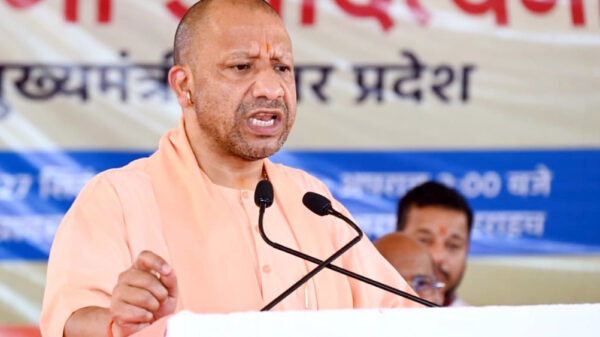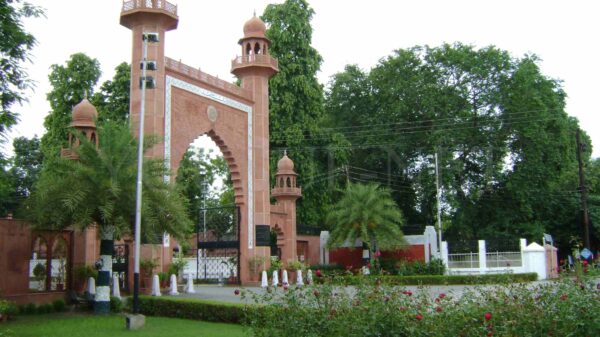The Supreme Court seven-judge bench will hear a crucial case on the minority status of Aligarh Muslim University (AMU) on January 9, 2024. The case has been pending for over a decade and is now set to be reviewed by a seven-judge panel, deciding whether an educational institution created under a parliamentary statute can be given such status.
The Background
Established in 1920 by an act of the central legislature, Aligarh Muslim University (AMU) is distinctly characterized as a minority institution under Article 30 of the Constitution. which grants minorities the right to establish and administer such institutions
However, in 2005, the Allahabad High Court ruled that AMU can not be given the status of a minority institution, as it was created by an act of Parliament and not by the Muslim community. The court also struck down a 1981 amendment to the AMU Act, which had granted the university its minority status.
Later, amidst strong criticism from the university administration and the then UPA government the judgment was contested in the Supreme Court. In 2016, with a power shift, the government decided to change its stance and withdrew the appeal, saying that AMU is not a minority institution.
In 2019, a three-judge bench led by then Chief Justice Ranjan Gogoi referred the case to a larger seven-judge bench, noting that there were conflicting judgments on the matter.
The seven-judge bench, which is to decide on the criteria for granting minority status to an educational institution under Article 30 of the Constitution, will be led by Chief Justice D.Y. Chandrachud. The bench will also consider the validity of the 1981 amendment to the AMU Act, which had given the university minority status.
AMU’s counsel, senior advocate Rajeev Dhavan, has argued that the university is a minority institution, as it was founded by Sir Syed Ahmed Khan and other Muslim leaders in 1875 before it was incorporated by an act of Parliament in 1920.
He also argued that the state cannot change its position on the issue with every change in the government and that the court should reconsider the 1967 Aziz Basha case, which was based on a narrow interpretation of Article 30, characterizing the minority character of the institute as questionable.
He has further pointed out that there is an anomaly in the law, as deemed universities, which are also created by an act of Parliament, can enjoy the minority status, but not other central universities.
The central government, on the other hand, has maintained that AMU is not a minority institution, as it was created by an act of Parliament. It also argued that the 1981 amendment to the AMU Act, which had granted the university the minority status, was unconstitutional and ultra vires.
According to Shafey Kidwai, a professor in the department of mass communication and a member of the public relations office committee, the outcome of the decision, if against, will have far-reaching implications for the autonomy and functioning of AMU, as well as other minorities educational institutions in the country.
“If the Supreme Court denies the minority status of AMU, it will mean that the university will have to follow the norms and regulations of the central government, and abide by the policies, as applicable to other central universities,” he said.
The case will also set a precedent for other minority educational institutions, which may face similar challenges to their status and autonomy in the future, according to experts.


































































